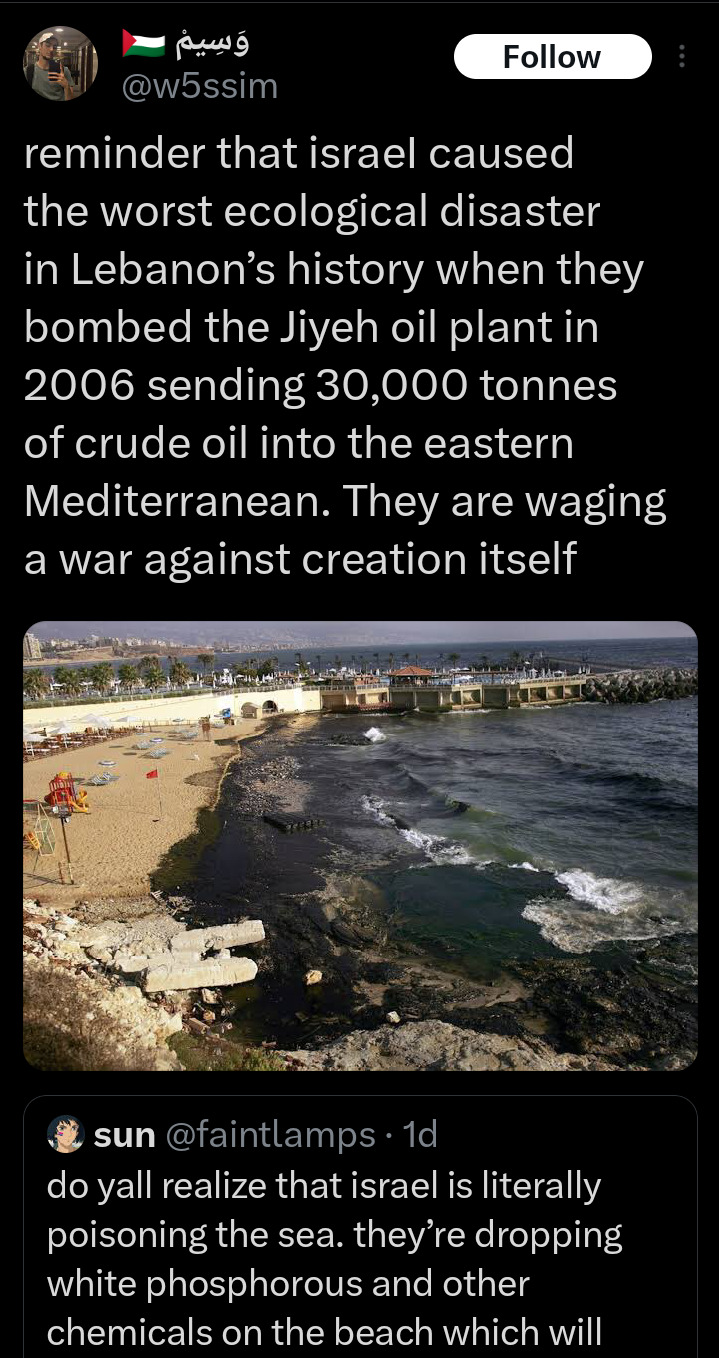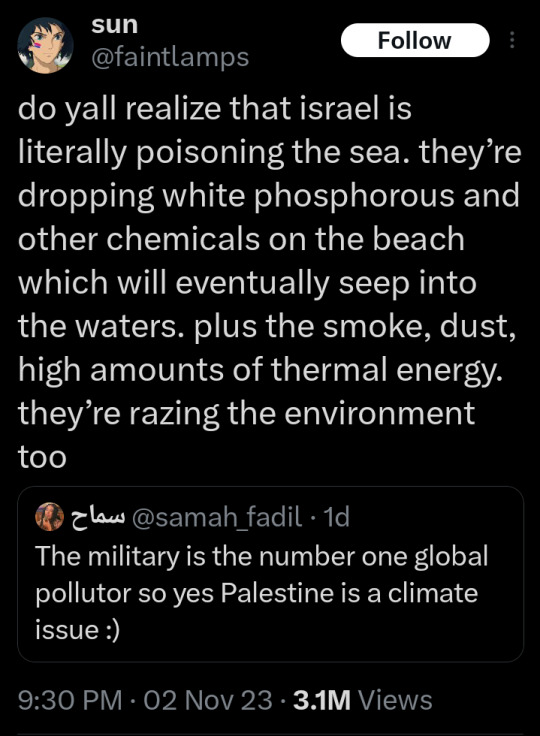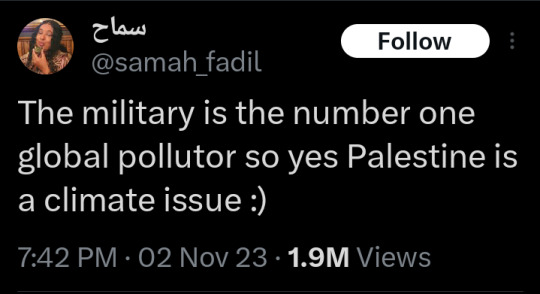Text
“The bravest thing I ever did was continuing my life when I wanted to die.”
— Juliette Lewis
19K notes
·
View notes
Text
“Other peoples’ opinion of you is their problem, not yours.”
— Unknown
255 notes
·
View notes
Text

I can't forget you, not because I have a strong memory, but because I have a heart that never denies those who settled in it once.
-Mahmoud Darwish
23 notes
·
View notes
Text
“When a person tells you that you hurt them, you don’t get to decide that you didn’t.”
— Louis C.K.
465 notes
·
View notes
Text
Can you hate someone for what they have done, but still love them for whom they had been?
Jodi Picoult, Nineteen Minutes
4K notes
·
View notes
Text
Best Practices for Communicating about the Climate Crisis
Communication Tips
Keep it local. Focusing on bringing local solutions. You can lean into community pride to help motivate community action. And while climate change may have global impacts, emphasizing local climate impacts and benefits of local policies will resonate with more people, and feel more approachable/doable.
Stay focused on solutions. While the consequences of climate change are dire, focusing too much on how bad things could get tends to make people feel overwhelmed, hopeless and cynical – which doesn’t help them get or stay involved. Try not to give more than 1 or 2 examples of local consequences of environmental issues, then dive into how this work provides solutions.
Include your audience. Instead of using “I” or “you”, talk about what “we” need to do to turn things around. This includes using “we” when you’re talking about the government, when appropriate - after all, the government is meant to be for and of our communities.
Lean into moral values. Most people agree that we have a moral responsibility to protect our environment’s health, stability and safety for future generations, so don’t be afraid to talk about that or other values that resonate with you about this work.
Focus on tangible gains. Things like “the economy” are important, but they don’t feel as immediate as combating rising costs, protecting their and their neighbors' health, and saving money. Paint them a picture of the prosperous, stable, livable city we can create.
Project a can-do attitude. A lot of people are feeling let down by leadership at all levels, and feeling hopeless and helpless about making change. So, it’s important that you show that you and others are out here willing to really do the work - and there’s room for them to join in. Also, be sure to talk about successes.
Don’t waste time on opponents. We can't get everybody on our side. However, there are enough people that are excited about the prospect of living in a safe, sustainable community, where everyone has clean air to breathe/water to drink and a family-sustaining job that we don't need to convert opponents.
Encourage investment. Rather than framing the changes we want in terms of the drudgery of having to adapt to a bad situation, try to build excitement in the possibilities we can invest in - together. Everyone likes to feel they’re getting in on an exciting, cutting edge investment. Relatedly, be wary of statements that make people feel like they’re going to lose, rather than gain, options. Remind people that our current systems are not only unhealthy, dirty, and dangerous - they’re also ineffective.
Create immediate avenues for action. Once you’ve built up some excitement about what we can do, give people an immediate step they can take to help. Give that positive energy somewhere to go and show them how good it can feel to get involved.
Focus on what you want people to do, not what you want them to stop doing. This helps people envision change, and makes them less nervous.
Communicate respect. Keep away from stereotypes and harmful words. And when you talk about other people, be careful not to put words in their mouths.
Remember, you're not just combating ignorance, you're combating hopelessness, helplessness, and burnout!
2K notes
·
View notes
Text
“Waiting is painful. Forgetting is painful. But not knowing which to do is the worst kind of suffering.”
— Paulo Coelho, By the River Piedra I Sat Down and Wept
253 notes
·
View notes
Text
Slowly, i can see myself being pushed out of your life like an unwanted smell. Maybe you used me to put all of your leftovers inside of before getting sick of the smell you created and leaving me on the side of the road to become someone else’s problem.
#poetry#mental health#visualpoetry#sad poetry#sad quotes#sad poem#this is depressing#anxitey#relatable poetry#quoteoftheday#abandonment
4 notes
·
View notes
Text

#poetry#mental health#visualpoetry#quoteoftheday#inspiring quotes#quotes#i wrote it#spilled writing#spilledink#writers and poets#heartbreak#relatable quotes#relationship quotes#relationship#hurt#healing#emo
5 notes
·
View notes
Text
“I owe myself the biggest apology for putting up with what I didn’t deserve.”
— Unknown
5K notes
·
View notes
Text
Just because I’m ready for change, doesn’t make it any easier.
#mental health#poetry#quoteoftheday#inspiring quotes#beautiful quote#relatable quotes#quotes#poetic#writers on tumblr#change#social media
1 note
·
View note
Text
Every time a word comes out of her mouth just intensifies my need to punch the wall
1 note
·
View note
Text
“Everybody I ever loved, I still love a little.”
— Marilyn Monroe to Hedda Hopper, 1961
210 notes
·
View notes
Text
when a toxic person cannot control you anymore, they'll try to control the way how others around you see you
146 notes
·
View notes
Text
If i am the sunshine they say i am, why do people prefer the shade?
(Pov i feel really cringy writing this)
2 notes
·
View notes
Text
“Remember: not everyone has the same heart as you.”
— Unknown
224 notes
·
View notes



